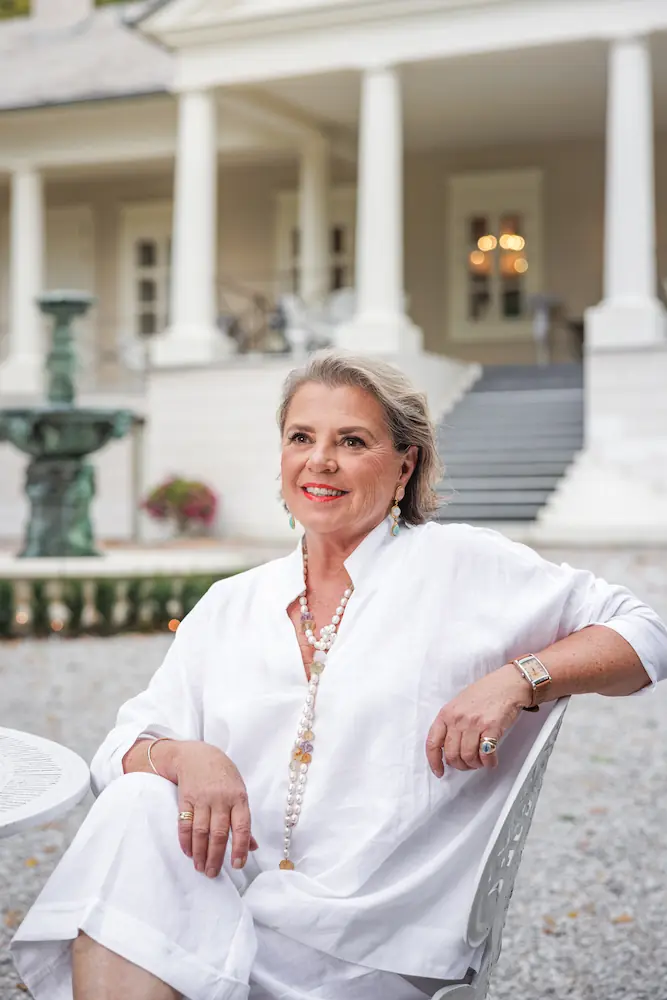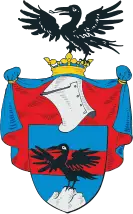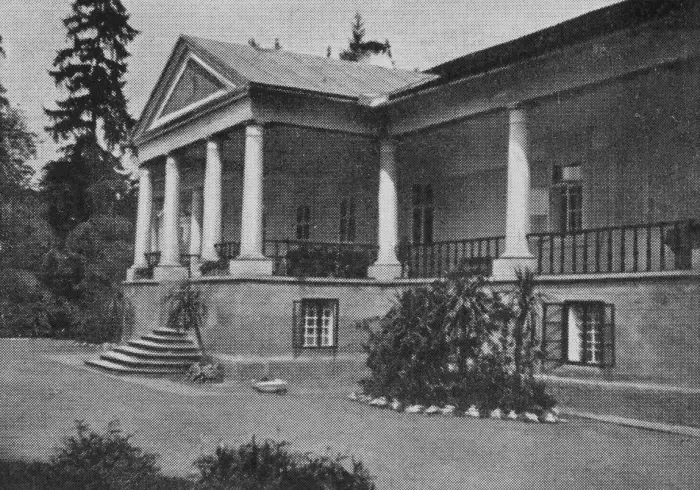


was a royal advisor during the reign of Empress Maria Theresa. He and and his wife Zsófia, (née Usz de Uszfalva), were landlords and patrons of Hermanovce (Hermány). The history of their son Franciscus Péchy de Péchujfalu, an imperial commissioner who ruled over the nearby lands and villages, is remembered as a great love story of that era: When Franciscus proposed to Barbora Bereczky, the daughter of a nobleman from the town of Bardejov, he received the answer: “yes''. However, her agreement came with a condition attached: Franciscus should build her a new manor house on the hill of his estate. Her wish was fulfilled with the building of the present manor house in the neo-classical style fashionable at the time.
Barbora soon settled into life at Péchy and became the typical lady of the manor. She was very much involved with the local community and embarked on making many generous gifts to the village. She ordered and paid for the construction of a Catholic church opposite the manor house. It still stands there today with its onion-domed tower and a Gothic altar by Master Paul of Levoca, the sculptor and creator of the tallest wooden Gothic altarpiece in the world. In 1818, she ordered a domed mausoleum to be built in front of the main entrance to this church for her beloved husband – until today, it houses the coffins of the couple. Around 1800, the gentle slope around the manor house was transformed into a two-hectare English park with a French garden.
(née Bánó de Tapolylucska et Kükemezö), owned Péchy Castle, its manor yard, distillery, vast forests and arable lands until 1945. In 1927, they built a Hunting Lodge as a guest house for their relatives from Budapest, who enjoyed their holidays in the country. Favourite pastimes at the time included hunting, picnics in the great outdoors, carriage rides and walks, paying visits to relatives in the surrounding mansions, balls in Budapest and excursions to the historic towns of Prešov (Eperjes) and Košice (Kassa). To the delight of everyone, George and Klára added a tennis court next to the manor house and a swimming pool supplied by freshwater from the adjoining creek. At the end of the Second World War, when the Soviets marched through the region, George Péchy was captured by Soviet soldiers and held in a prison work camp in the Caucasus Mountains. He died there in 1945 as a result of the terrible conditions he was forced to endure.
was allowed to live on in one room in the looted mansion with her only daughter Klára until 1948. After that, they were expelled from the village leaving behind hundreds of years of family history. Until the mid-fifties, they lived in a tiny farmhouse in a nearby valley. The Communist regime confiscated the entire property of the Péchy family in 1945. The buildings were used as schools, but over time they became ruins and the park turned to a jungle. In the 1990s, during the restitution period of the former socialist countries, parts of the original property were given back to the family. The granddaughter of George and Klàra Péchy de Péchujfalu took on the task of her life in rebuilding and saving the centuries-old family heritage – reconstructing the park, renovating the houses and reviving the forests.